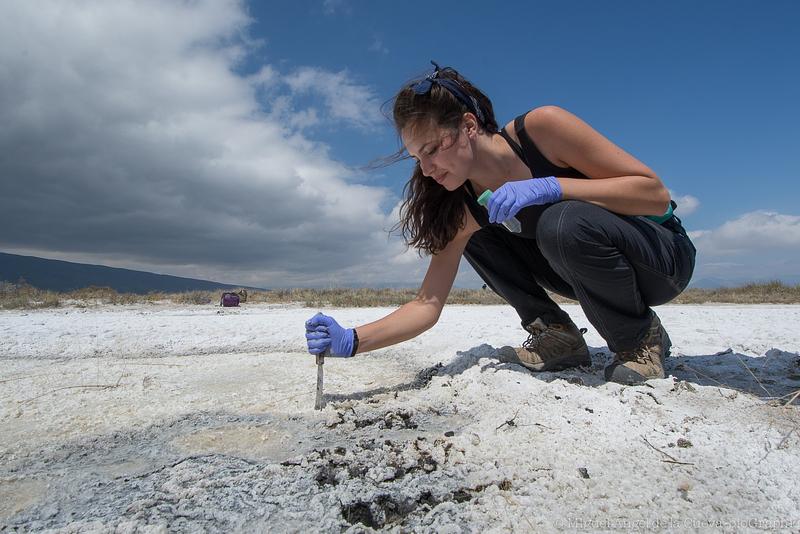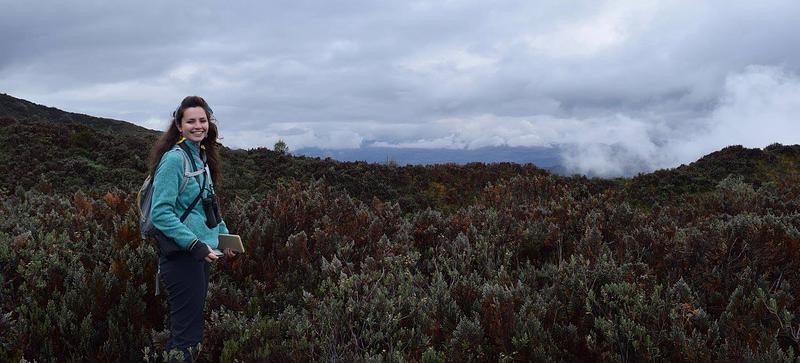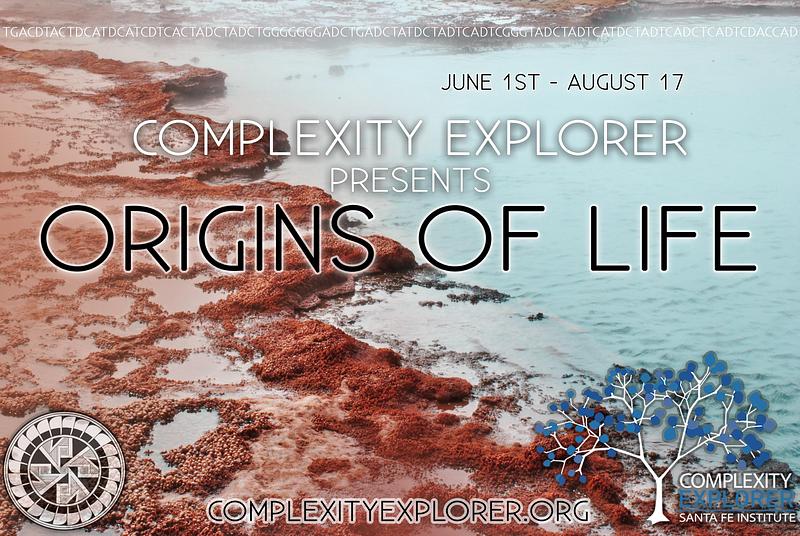
- [] /
- 16 May 2022
- Astrobiology Biology Evolution Origins of Life
Join us for Origins of Life with Instructor Maria Kalambokidis
Maria Kalambokidis has expertly filled the role of Teaching Assistant from the beginning of our Origins of Life course, and we are thrilled to have her instructing this summer, with support from course co-creators Chris Kempes and Sarah Maurer.
Maria is currently a PhD student in the Department of Ecology, Evolution, and Behavior at the University of Minnesota, where she uses experimental evolution to study life’s major evolutionary transitions - including the origins of life. Her previous projects include studying microbial communities from Antarctica, the North Atlantic, Amazonian rivers, and Mexico’s Chihuahuan Desert to better understand the resilience and evolutionary history of life.
Read on to learn more about Maria's work and this exciting, interdisciplinary offering!
 1. The origin of life on earth is a fascinating and rapidly changing field of research. What do you find most challenging or exciting about the search for the origins of life? How did you become involved in studying this question?
1. The origin of life on earth is a fascinating and rapidly changing field of research. What do you find most challenging or exciting about the search for the origins of life? How did you become involved in studying this question?The most challenging part of the search for the origin of life is also why it’s exciting: The sheer breadth of possibilities for how life could emerge. We know that we must have begun with non-life – perhaps a prebiotic “soup” – and we ended up with cellular life, but disentangling the many paths life could have taken in between is an incredible challenge. That’s why the field draws on so many realms of scientific knowledge and requires the acknowledgement that we are not only searching for how life did emerge on Earth, but also how it could emerge more generally.
I became involved in this question through my fascination with the possibilities for life beyond Earth. With that curiosity, questions about the origin of life naturally follow; if there’s life elsewhere, where did it come from? During my senior year of college at the University of Wisconsin-Madison, I took a seminar course on the origins of life, which introduced me to the vast literature on the subject, and I’ve been working on related projects since, such as my work in Mexico and organizing a workshop with early career researchers recently at SFI.
2. How does your current research inform the search for the origins of life on earth and beyond?
My research in the Travisano Lab at the University of Minnesota uses experimental evolution to explore major evolutionary transitions (e.g. the origins of life, eukaryotes, and multicellularity) to examine the evolution of complexity in real time. By understanding the causes and consequences of biological innovation in model systems, we can explore important parameters for how these transitions could occur elsewhere.

3. What is your favorite thing about being part of the Complexity Explorer community?
I love how it connects people from around the world! I’m always excited to hear about where everyone is located and the backgrounds that have led them to such big scientific questions.

4. What advice do you have for young scientists who are interested in getting involved in research related to this course?
The literature on this subject is vast, so determine your niche within it. This course is a great introduction to the various lines of research related to the origins of life, after which you can explore the areas you’re most excited about or that best align with your expertise. Ask lots of questions, discuss with other researchers, and collaborate!
Right: Sampling a microbial mat in Coahuila, Mexico ©Miguel Angel de la Cueva / bioGraphic
Left: Conducting research in the Andes of Ecuador
5. What is your favorite part of the Origins of Life course on Complexity Explorer? Do you have a favorite unit or topic?
I love the diversity of expertise highlighted in the lectures! We get to hear from so many incredible researchers in a way that’s condensed and digestible. My favorite units are the ones on early life and evolution, since I love exploring how evolutionary processes in extant life can inform pre-cellular evolution (of course, I’m biased as an evolutionary biologist!).

